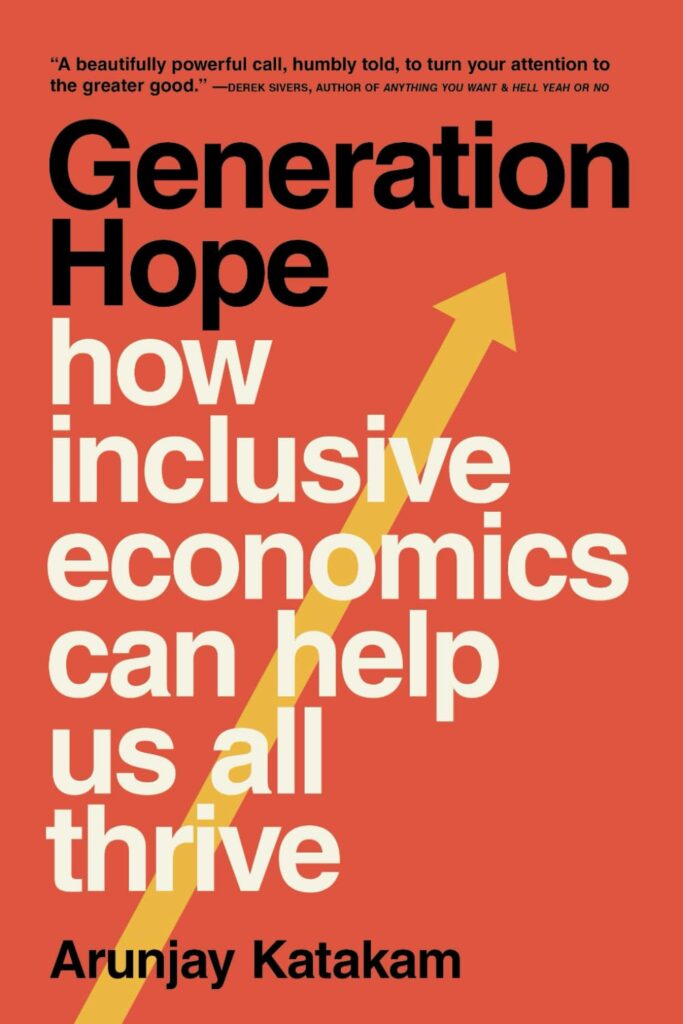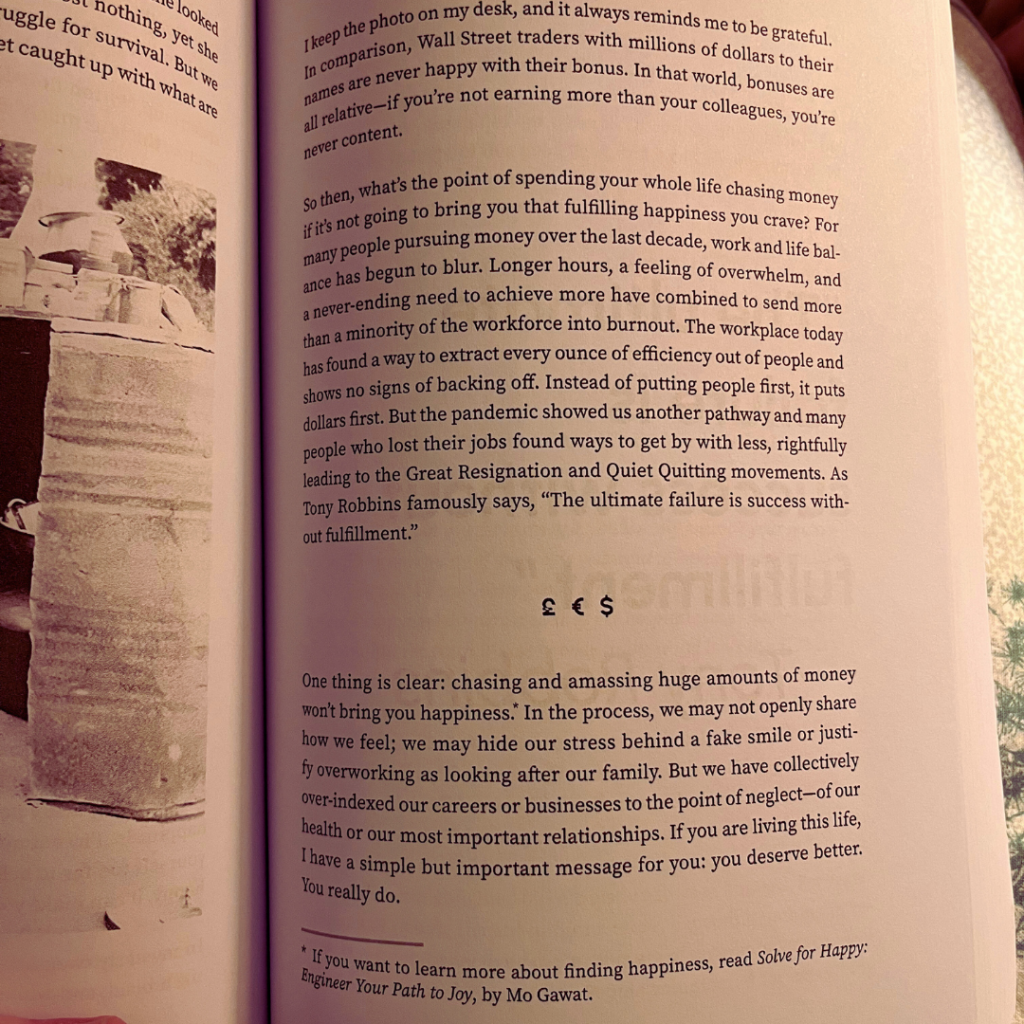This is a review post for Generation Hope: How Inclusive Economics Can Help Us All Thrive by Arunjay Katakam.
*This post may contain affiliate links which if you click through and make a purchase will generate me a small amount of revenue. These links will be marked with * for your reference.
Reviewing a book is always hard because you want to share enough about the book to make someone else want to read it, based on your recommendation but you also have to be careful not to give too much away so they don’t feel they would want to read it, or to ruin the plot or theme of the book.
So, whilst I am reviewing this book by I will try to not spoil it for you, but I would encourage you to get your own copy *, it is very well worth a read.

It has become clear:
Our current economic system is broken. Growth at all costs is unsustainable.
It is easy to get discouraged when faced with the reality of the current climate crisis, economic instability, and the vast income inequality across the globe. It’s obvious that our trajectory is aimed toward destruction. But is it possible to make adjustments to that path, and if so, who’s going to lead us?
Generation Hope answers these questions, first by exploring the historical, political, economic, and cultural foundations that got us where we are today, and then delving into what it’s going to take to ensure that we are headed toward a sustainable future that benefits us all. Written in clear and compelling prose, the book addresses a wide range of today’s most pressing economic issues, from the macroeconomic challenges that humanity collectively faces, to our personal engagement with our current economic system. You will read illuminating and inspiring examples of people, organizations, companies, and governments that are already doing the work of building inclusive economic systems that serve all of humanity and this planet we call home.
Little by little, our consciousness is already shifting, especially among millennials and younger generations. This book illustrates how to continue moving from a mindset of scarcity and survival to one of abundance and thriving, from narrow-minded self interest to an awareness that we are part of a much larger interconnected whole.
The world needs us. Together, we can save our planet and help humanity thrive.
Together, we are Generation Hope.
This is an incredibly compelling book. I was nervous to read it at first, because I am wary of unrealistic idealism and theories that seem good on paper but in practice are, well, impractical. But this book really is helpful, realistic and also does give you a picture of how we could actually do life better.
As a parent, as someone who has faced uncertaintiy and financial challenges, with the prospect of future generations being left to live on a planet that humanity has not taken good care of and now faces those consequences, as someone who works with people who deal with poverty, food poverty, relying on systems set up in good faith, but that in practice don’t really work, I will admit that cultivating an attitude of abundance when some days I am not sure how people can survive, is a huge challenge for me, but it really is a different mindset and perspective and that takes work. This book is very helfpul in this process. Learning from history, and the mistakes or sucesses of the world to be able to then work towards living in a place where inequality is rare, rather than common, does sound idealistic but maybe that is what we need?
I happened to open the book randomly before I began to read it, and this is the page that appeared.

Basically money doesn’t buy happiness, and in a world of consumerism, where we are obsessed with owning a property no matter how crippling the mortgage might be, when we have to pay for healthcare because the system set up to provide free healthcare for all isn’t working, these words seem particularly apt.
It really is a refreshing and eye opening book. If you are wondering how life can be so complex and challenging but you don’t want it to be, then reading this might give you some very substantial food for thought. Whilst right now, life, economic uncertainty, climate change, war and the chaos that the world seems to be in right now, are very scary and worrisome, we could, maybe, if we all worked together, find a better way…
Hopefully this hasn’t spoiled the book for you and you decide to try reading it for yourself.
Arunjay Katakam is the author of Generation Hope: How Inclusive Economics Can Help Us All Thrive. He is a writer, speaker, thinker, and serial entrepreneur. Over the last two decades, he has had a front-row seat in finance and development, on both sides of the rich/poor coin. This book is based on his observations as a recovering wealth-chaser and, above all, as a father.
You can find him at www.arunjay.com Twitter/X: @arunjay Instagram: @arunjay.katakam LinkedIn: Arun Jay